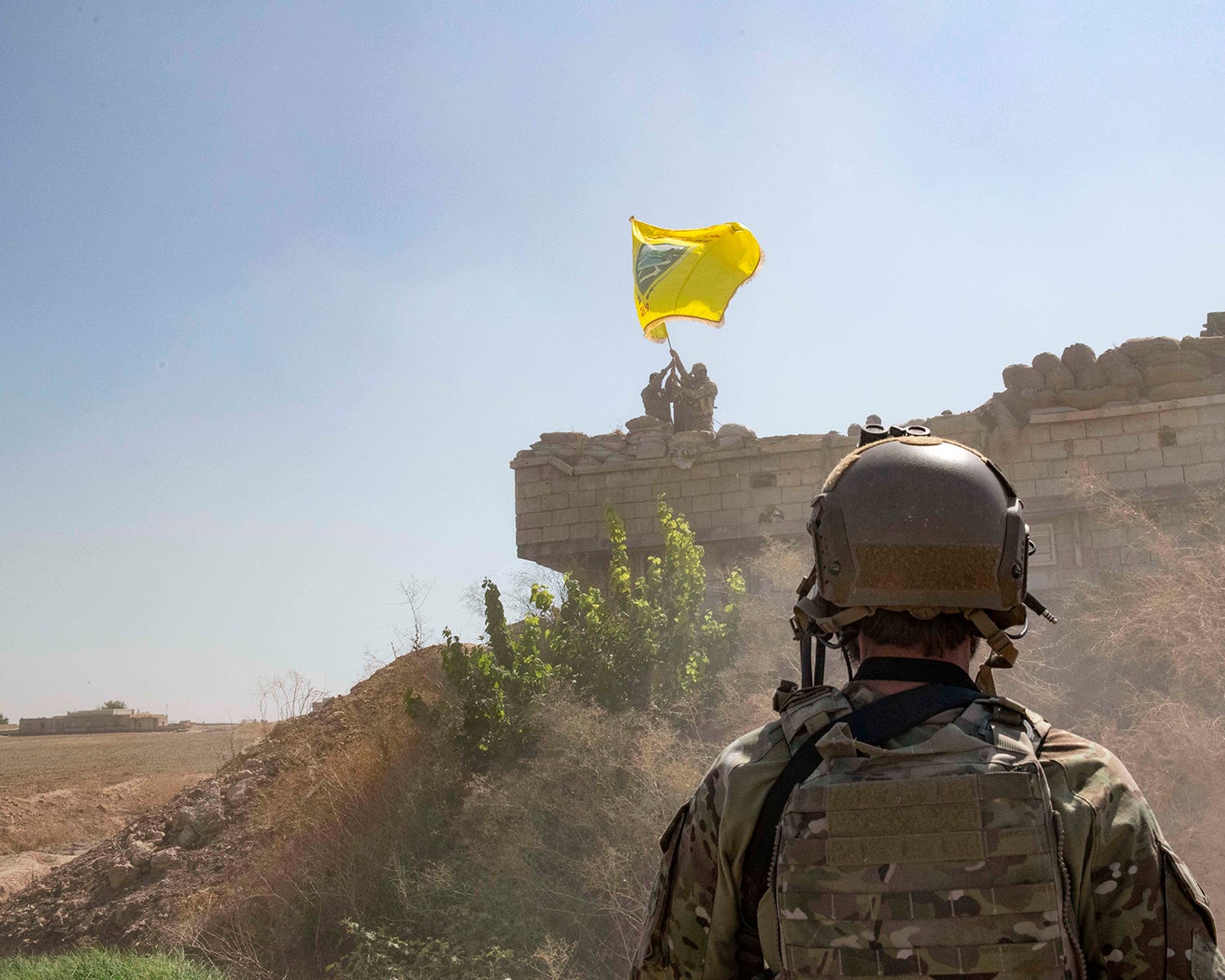The Pentagon said Monday it does not endorse a Turkish operation in northern Syria, and that U.S. troops would not support or be involved in such an operation.
The statement from the Pentagon follows Sunday’s White House announcement that U.S. troops would withdraw from northeastern Syrian ahead of a potential Turkish military incursion to rout out Kurdish militants.
A senior administration official told reporters Monday that Sunday’s announcement did not constitute a full U.S. withdrawal from Syria and that only 50 to 100 U.S. special operations forces were moving to other locations in Syria.
The official explained that Trump’s decision to move the special operators out of the zone of a potential Turkish operation was done to protect troops and keep them out of the crossfire.
Those troops are moving to more secure areas over the next several days, the official said.
“The Department of Defense made clear to Turkey — as did the president — that we do not endorse a Turkish operation in Northern Syria," Jonathan Hoffman, the chief Pentagon spokesman said. “The U.S. armed forces will not support, or be involved in any such operation.”
RELATED
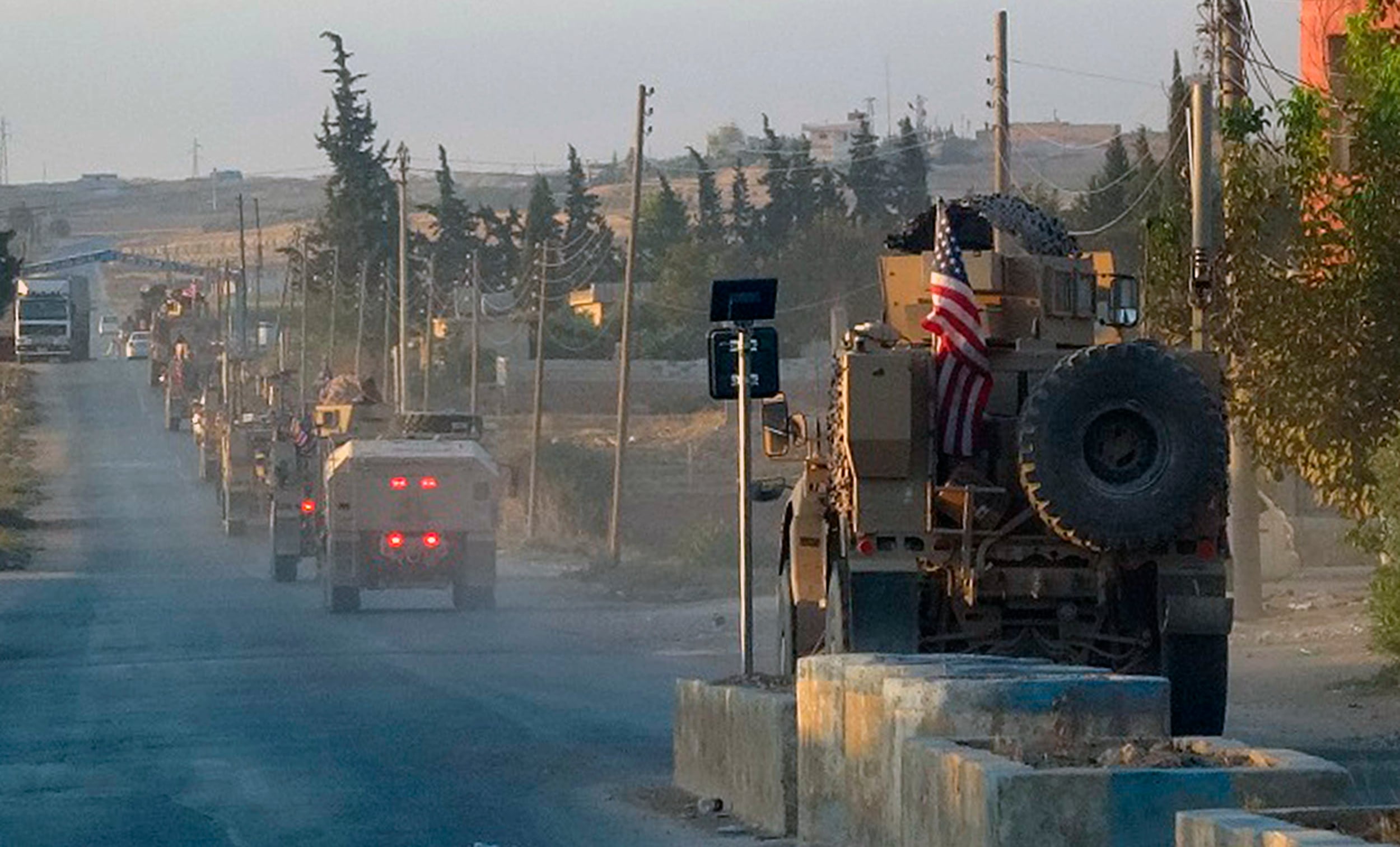
Turkey’s potential invasion of northern Syria threatens a resurgence of Islamic State fighters in the region.
The DoD reiterated that “coordination and cooperation” were the best options forward and that unilateral action could create risks for Turkey, Hoffman said.
Air Force Lt. Col. Carla Gleason, a Pentagon spokeswoman, confirmed to Military Times that Turkey had been pulled off the air tasking order and that the U.S. was not sharing reconnaissance drone feeds with the country.
Thousands of ISIS fighters under the watch of U.S.-backed Syrian Democratic Forces across dozens of pop-up detention facilities in northern Syria represent a time bomb waiting to explode.
Their release could lead to a comeback for the terrorist group that has since largely been scattered to remote ares under intense coalition air support and sustained operations by SDF forces.
The White House said Turkey would be responsible for the ISIS fighters detained over the last several years. Sunday’s statement came following a call between President Donald Trump and Turkish President Recep Tayyip Erdoğan.
But, some argue America’s NATO ally does not have the capacity or will to oversee the tens of thousands of detainees and refugees.
“Turkey has neither the intent, desire, nor capacity to manage 60k detainees in al Hol camp, which State and DoD IGs [inspector general] warn is the nucleus for a resurgent ISIS. Believing otherwise is a reckless gamble with our national security,” Brett McGurk, Trump’s former envoy for the fight against ISIS, tweeted.
Turkey has long made claims of a pending invasion of northern Syria to buffer against what it sees as Kurdish groups aligned with the terrorist group known as the Kurdistan Workers’ Party, or PKK.
Kurdish YPG fighters who fought under the larger SDF umbrella organization to liberate northeastern Syria from ISIS fighters have various allegiances to the PKK. That connection has soured relations between Ankara and Washington.
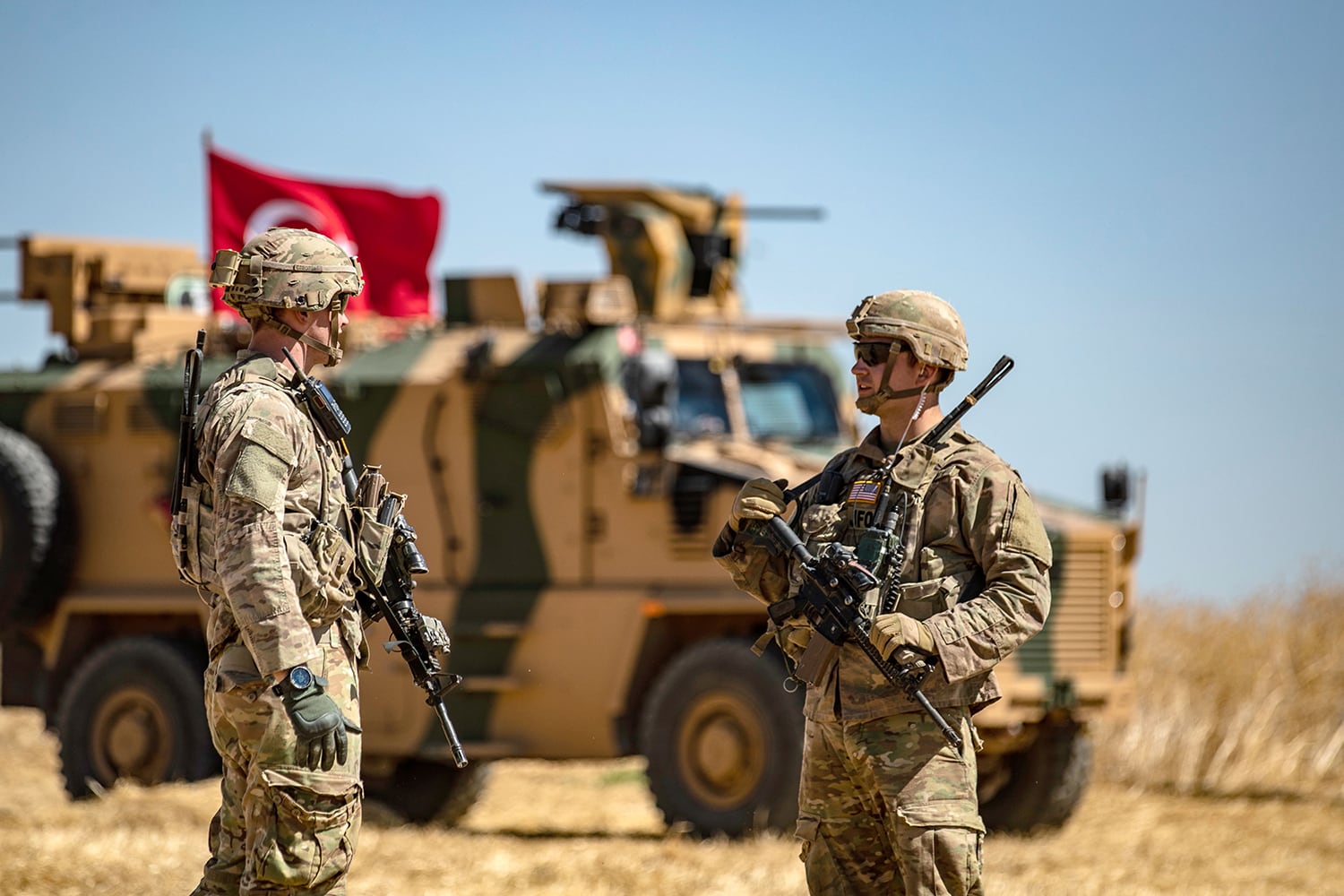
The stressed relationship now threatens a breakout or release of ISIS prisoners, which could flood the battlefield with new fighters and offset gains made by the coalition and SDF forces who have grounded the terror group into small rural and desert pockets across the Euphrates.
SDF forces are currently holding roughly 11,000 ISIS detainees across more than 30 detention facilities, according to Marine Capt. Marisa Roberts, a spokeswoman for the the U.S.-led mission to defeat ISIS in Iraq and Syria known as Operation Inherent Resolve.
Among those detainees are also nearly 2,000 foreign fighters, “who would otherwise try to return to their home countries and plot attacks on innocent civilians,” Roberts said.
A camp for internally displaced persons known as al-Hol, located in Hasakah province, Syria, is well over capacity, holding nearly 70,000 people including thousands of ISIS families, according to a DoD report.
A DoD inpector general’s report said the SDF were only capable of providing “minimal security” for the sprawling camp, which has allowed “uncontested conditions to spread of ISIS ideology."
The report also said that due to the drawdown of U.S. forces in Syria, Operation Inherent Resolve was having trouble tracking the situation in the camp.
U.S. Central Command noted in the inspector general report that ISIS was likely “exploiting the lack of security” at the camp to recruit and reestablish communications with fighters who left the battlefield.
A congressionally mandated report on the Syrian civil war also sounded the alarm regarding the threat poised by the overburdened ISIS prison camps.
“Security conditions are tenuous inside both IDP [internally displaced persons] camps and pop-up prisons,” the final report for the Syria Study Group reads.
The report warned that ISIS fighters could mimic its tactic of prison breaks to refuel its rise across Syria as it did in Iraq in 2012 and 2013.
RELATED
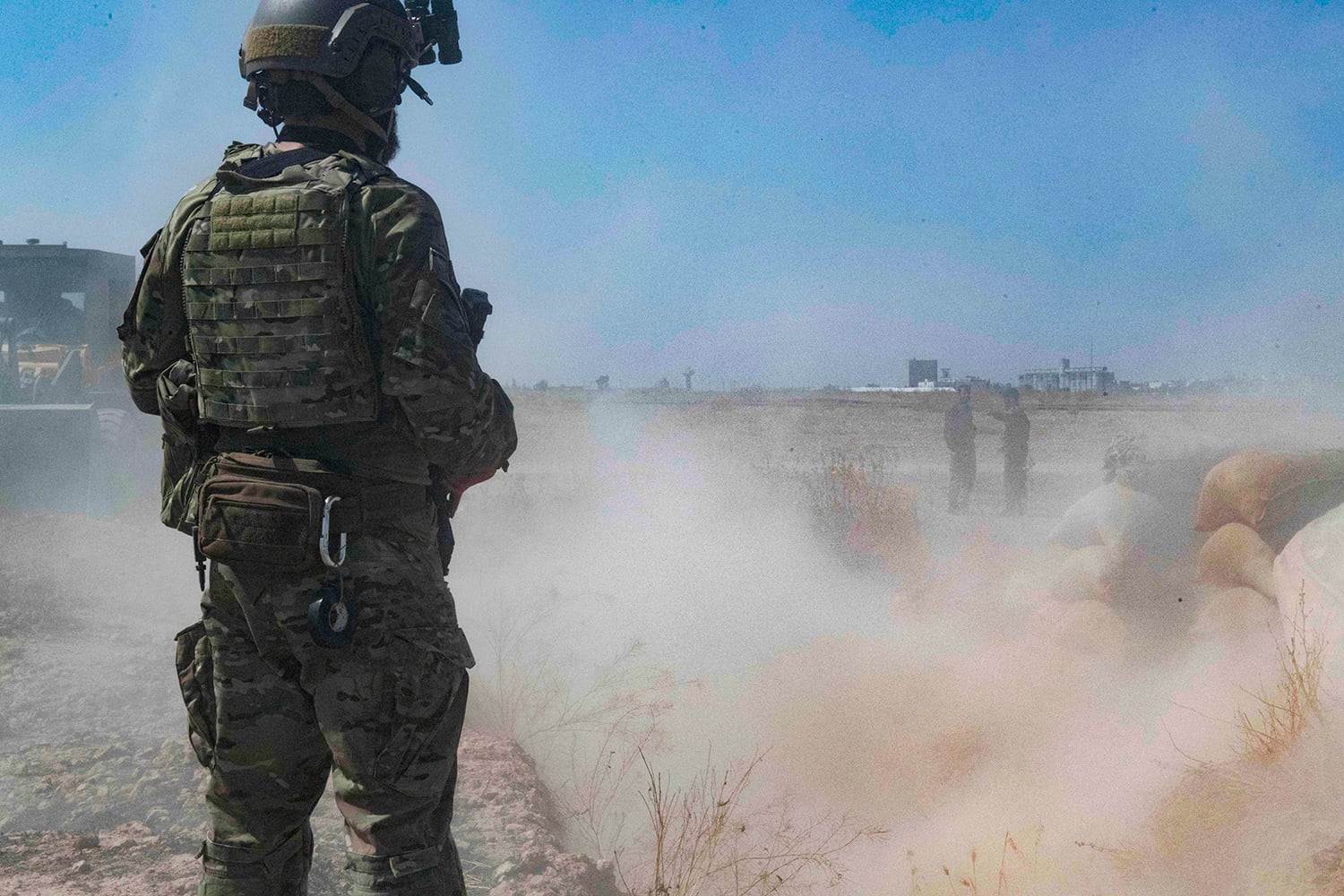
Moreover, if Syrian President Bashar al-Assad’s forces move to fill the vacuum in northeast Syria, the regime “could “weaponize” these individuals in the same way it utilized al-Qaeda fighters against the United States during the war in Iraq,” the report reads.
Sunday’s White House statement has received much criticism from across the national security spectrum, some who see Trump’s decision as an abandonment of America’s ally in its fight against ISIS in the region.
Former U.S. CENTCOM commander Ret. Gen. Joseph Votel told Military Times that he was “disappointed” in the policy decision.
“The SDF have been exceptional partners,” and the group absorbed nearly 11,000 casualties in the fight against ISIS, Votel said.
“We would have not been successful against ISIS in Syria without them. I am concerned what this might mean for future partnerships,” Votel said.
On Monday, Trump, buffeted by withering criticism, threatened action against Turkey if harm comes to the Kurds.
Roberts told Military Times that the coalition has helped train nearly 300 security guards to help man the SDF prison camps.
“Securely detaining thousands of Daesh fighters is a matter of global security and the SDF needs the assistance of the international community," Roberts said.
"Repatriating foreign terrorists to their countries of origin for potential prosecution is the best long-term solution to prevent them from returning to the battlefield.”
But, repatriation has been a contentious issue among allies.
RELATED
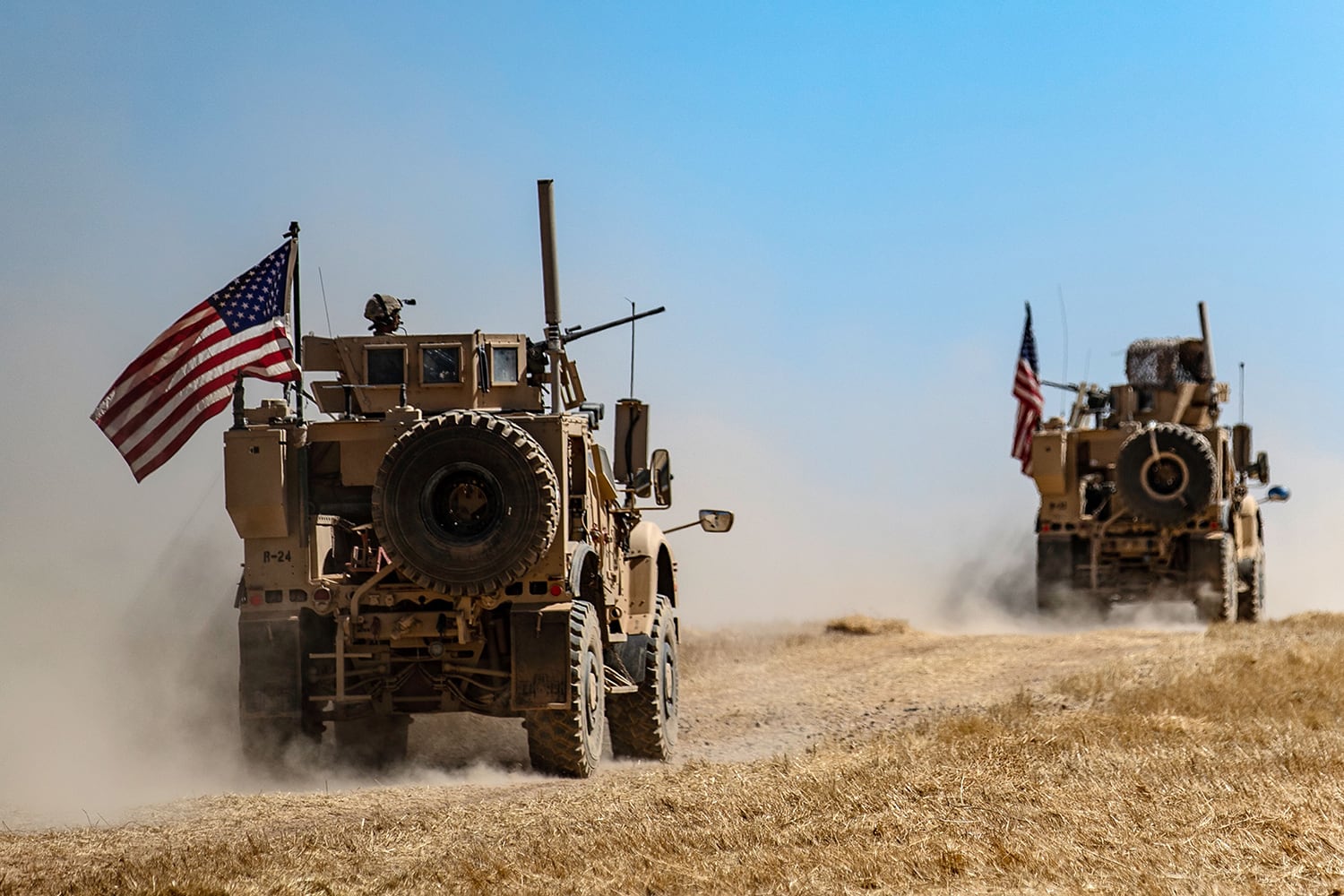
“The United States Government has pressed France, Germany, and other European nations, from which many captured ISIS fighters came, to take them back, but they did not want them and refused,” the White House statement reads.
The White House said that the U.S. "will not hold them [ISIS detainees] for what could be many years and great cost to the United States taxpayer.”
The Syria Study Group report explained that several European countries have refused to repatriate citizens who fought for ISIS, and instead have sometimes chosen to strip their citizenship.
“Many of these countries lack the necessary evidence to charge ISIS fighters in domestic courts; others worry that the fighters could be convicted only on lesser charges and would serve short sentences before being released,” The Syria study reads.
The status of thousands of ISIS fighters in thinly secured SDF prisons is a major national security concern.
Jennifer Cafarella, the research director for Institute for the Study of War, told Military Times that following a Turkish invasion into northern Syria, the SDF could pull security from the prisons and replace them with less capable units.
“We will work with our other NATO allies and Coalition partners to reiterate to Turkey the possible destabilizing consequences of potential actions to Turkey, the region, and beyond,” Hoffman said.
Military Times managing editor Howard Altman contributed to this story
Shawn Snow is the senior reporter for Marine Corps Times and a Marine Corps veteran.
